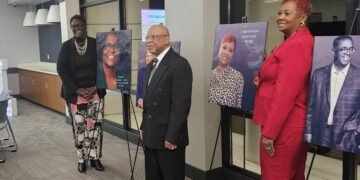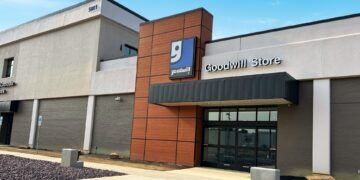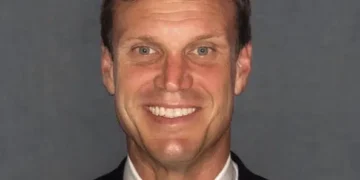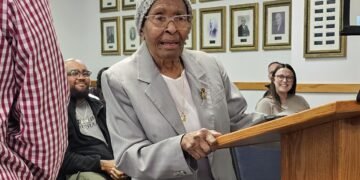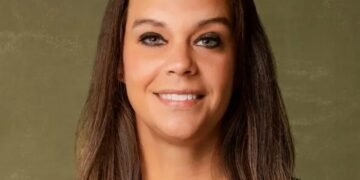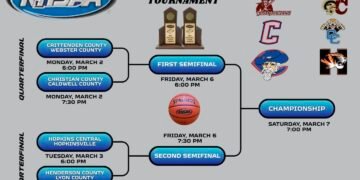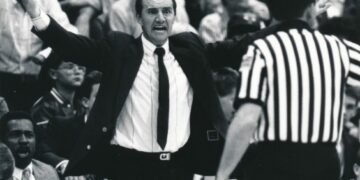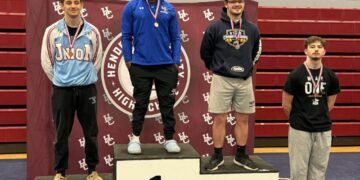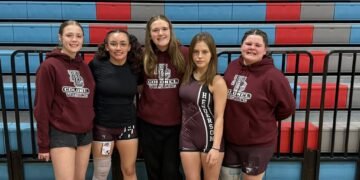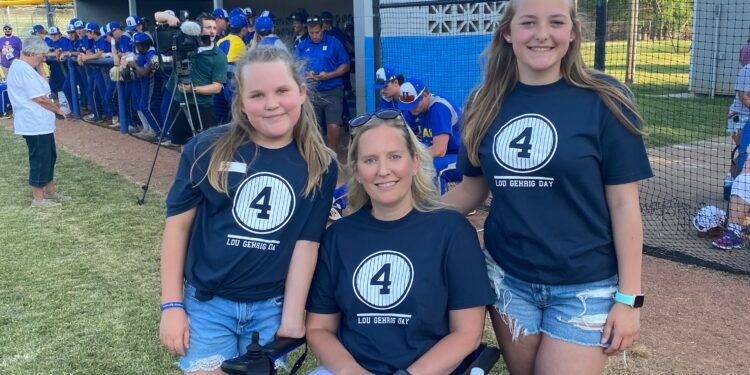Hendersonian Katie Adams continues to raise awareness about ALS while fighting the disease
There’s only one person who can effectively share the heroic story of Katie Adams.
And that’s Katie Adams.
About a year ago, the story she shared before the Kentucky General Assembly about her herself (and about others fighting a battle like hers) changed the law.
As someone who had been diagnosed just six months before with ALS (amyotrophic lateral sclerosis, also commonly known as Lou Gehrig’s Disease), the Henderson County mother of two testified in Frankfort before the Senate Health Services Committee about the grave need for an update in state law.
She was 39 years old, and she was asking them to close a medical insurance coverage gap for persons younger than 65 with debilitating conditions such as ALS and end-stage renal conditions.
Because of her diagnosis, Adams qualified for Medicare, but the problem was finding a supplement for the 20% of extensive medical expenses that Medicare would not cover.
“As a person under 65, I did not have an option for affordable Medigap coverage,” the former occupational therapist and rehab manager said, noting in her testimony that trying to find an insurance solution became her new full-time job at a time when she already no longer had the strength to push a manual wheelchair.
A power wheelchair that would help her stay mobile and independent longer was on order but had become unaffordable when the insurance gap plan she did qualify for declined to cover it.
“I painfully figured out that I had no option,” Katie told the Senate committee, adding that “soon I will not be able to walk at all.”
Fast forward to the happy ending of that one situation. After an emotional day during which some senators explained their votes of support through tears, HB345 unanimously passed out of committee and on to the Senate floor.
Within a few weeks, Adams, family members (including her parents, Gary and Debbie Adams, and daughters, Riley and Addison) and supporters were present when Gov. Andy Beshear ceremonially signed it into law.
“I felt such an overwhelming sense of accomplishment and happiness, knowing that this will help people in the future, not just with ALS, but with other serious illnesses, too,” Adams said.
***
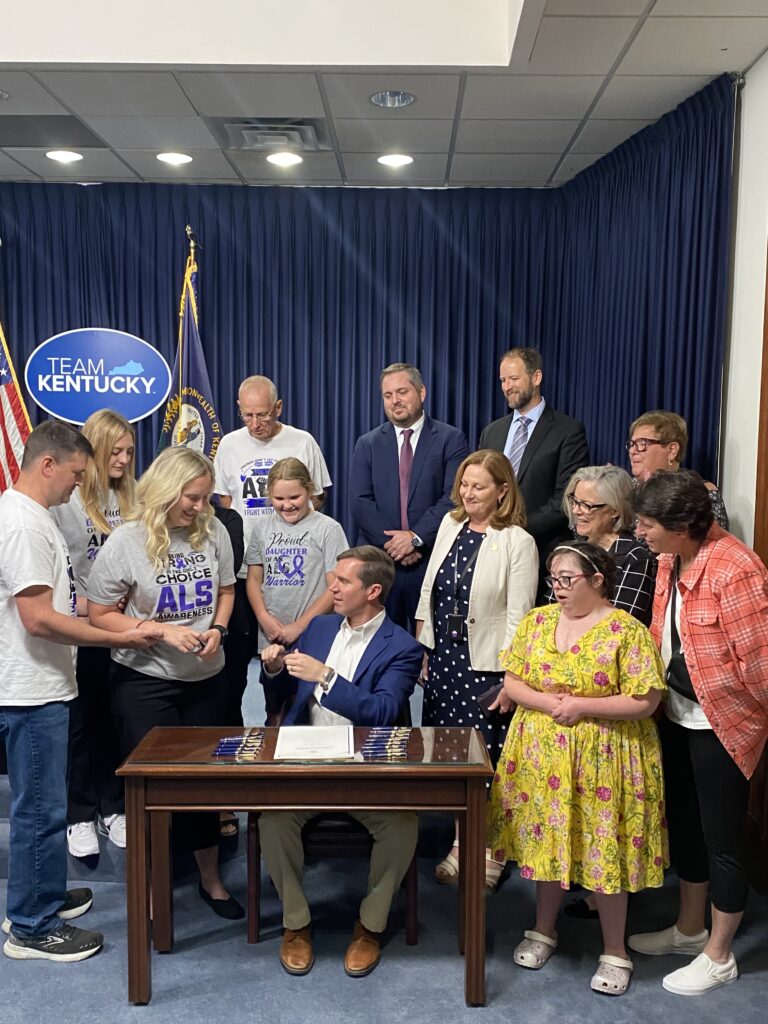
The ALS Association website describes the disease like this: “ALS, or amyotrophic lateral sclerosis, is a progressive neurodegenerative disease that affects nerve cells in the brain and spinal cord. There is no cure for ALS as of yet.”
ALS robs people of the ability to walk, talk and eventually breathe.
Remember about 10 years ago, when the “Ice Bucket Challenge” intended to raise money for and build awareness of ALS went viral?
Adams, in her job as a healthy rehab center manager, took the challenge along with her co-workers. They made a video, a clip of which is now included in the “Katie Adams: Living With ALS In Her Own Words” story on the ALS.org website.
“I never in a million years thought I would be fighting the very disease that we were trying to raise money for,” she said.
Adams started noticing something was physically “off” in July 2021, which started a “long and frustrating” journey to determine a diagnosis.
“I noticed my symptoms … correlated with ALS,” she said. “Being an occupational therapist, I logged, and tracked my symptoms very thoroughly. I even had facts to support my decline such as my grip strength scores and fine motor coordination testing.”
Even with all that knowledge and information, Adams said, it wasn’t until she saw a neurologist at Vanderbilt in Nashville that she finally got on the right track to a diagnosis. Some prior caregivers had even suggested that stress was causing her symptoms.
But the neurology specialists at Vanderbilt confirmed that the situation was much more serious. The date was Oct. 28, 2022.
“I honestly felt a huge sense of relief that day,” she said. “I had already been processing the fact that I had ALS before my actual diagnosis date, so this day I felt validated in my concerns with what my body was doing. I also felt like I had a sense of direction on what to do next.”
The first thing to do was to let her loved ones and friends know what she was going to be dealing with.
“It was difficult to tell my children (Riley and Addison, then ages 14 and 9),” she said, noting that they now help her daily with taking medications and injections, helping her with showering, getting to the bathroom and dressing because she no longer has the strength or range of motion to do it on her own. “Their lives have changed significantly along with mine.”
Adams said the simplest of things have become a lot more difficult.
“I always drink from a straw because I do not have the strength to pick up cups and bring to my mouth,” she said. “Right now, I am still able to use my phone, but with great difficulty. Soon I will have a device that I can direct with my eyes.”
Adam’s father, Gary, acknowledged that it’s been tough on the whole family.
“The kids are having to grow up a little faster than they normally would. That’s hard to watch,” he said. “We’re living a nightmare that you can’t wake up from.”
Adams said that as soon as she was diagnosed, she knew she wanted to do something to “help others who had ALS and others who were going through the diagnosis process.”
A key motivation for her advocacy, she said, was to be a role model for her daughters.
“I want them to see that even in difficult situations we can help others,” Katie said. “I want them to fight for what they are passionate about.”
One result was that her younger daughter, Addison, created an educational PowerPoint presentation to teach the entire student body at Niagara Elementary about ALS. Then, the National Honor Society at the school raised and donated money to the ALS Association.
“I am very proud of both my daughters the way they have handled this tough situation,” she said. “They are both wonderful caregivers and have learned so much.”
Credit Adams with looking outward, beyond herself. She has become a face for the disease and is relentlessly good-humored in the positive posts she makes in the face of adversity on her Facebook page.
“She acts as a hero and role model to many in our community and across the nation, despite the enormous challenges she is facing,” said her friend, Emily Plummer.
In addition to being featured on the ALS Association website in video and blog posts, she’s been interviewed in the national media regarding her advocacy. She recently did a webinar discussing challenges when flying with a disability, she’s attended ALS awareness events and she’s participating in a Vanderbilt research study that she hopes will provide insight for future treatments.
“It’s amazing how having a fatal illness brings so much more volume to your voice,” Adams said. “It is difficult to allow others to see what a failing body does to someone. However, I feel the more people that know the truth about this disease, the more awareness that is spread. More attention needs to be brought to this disease, so that more can be done to help people who are fighting this battle.”
***
For more information, go to ALS.org.

